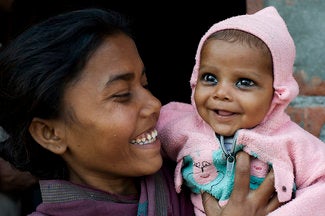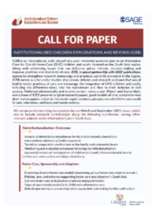

Displaying 181 - 190 of 699
This article offers a Local Process Initiative (LPI) process in the Devinuwara Divisional Secretariat Division (DSD) in the Matara District of Sri Lanka as an effective strategy for the deinstitutionalisation and quality alternative care of children in South Asia.
In this study on childcare staff in children’s homes of Kasaragod district of Kerala, the researcher adopted a descriptive design and selected all registered children’s homes for the study purpose.
This paper is an analysis on the history of adoption in India and the machinery in place now.
This chapter compares and contrasts trends in international adoption in China and India over a period of 27 years from 1992 to 2018.
"The state government [of Maharashtra] is launching a foster care scheme under which citizens can parent children from state-run child care institutions for a limited period of one to three years," according to this article from the Hindustan Times.
This article explores the psychosocial impact of COVID-19 on children in India.
This launch webinar provided an introduction to the Transitioning Models of Care Assessment Tool, an assessment framework that assists practitioners to identify and analyze key starting point dynamics and determine the implications for strategy in supporting organisations to transition from an institutional to non-institutional model of care.
This article explores care leavers’ views and recommendations for practitioners and policymakers on the transition from leaving care to living independently in the community. The article outlines how children and young people affected by child sexual exploitation experience community reintegration, and their views on the key issues reintegration services need to consider.
ICEB is receiving manuscripts that address alternative care in South Asia for the March and September 2021 issues.
In this How We Care series webinar, Family for Every Child members CPTCSA (Philippines), Paicabi (Chile) and Butterflies (India) come together to discuss the work they are doing to address child sexual abuse in their contexts.

